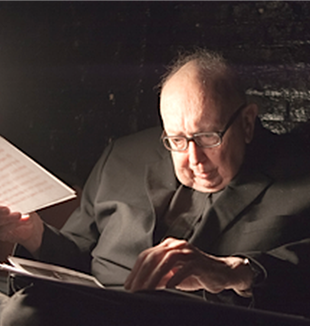
A living seed in the heart of the American dream
The figure and legacy of Lorenzo Albacete ten years after his death. A refined theologian, his “Chestertonian” irony, and a father to many, who prophesised the crisis of American society.What does God have to do with fried chicken wings or fountain pens? What do the distant stars have to do with the small things of everyday life, the passions, vices, enthusiasms, and personal encounters that shape our daily lives? This was the question once pondered by Giacomo Leopardi, and Lorenzo Albacete asked it every day of his life. He was a man who loved fried chicken and got excited like a child if someone gave him a fountain pen, which he collected. A refined theologian, he nevertheless spoke everyone's language. A scientist who never accepted the idea that God and scientific research were incompatible. A Catholic monsignor, with a robust physique much like Chesterton's, who found himself at home in some of the secular cathedrals in the world of American media, such as The New York Times, CNN or The New Yorker. A friend who is no longer with us, but who left us the gift of many reflections that can keep us great company. And which are more relevant than ever.
Monsignor Albacete was born in 1941 in San Juan, Puerto Rico. He later moved to study and work in the United States, first in research laboratories as a space physicist, then in Catholic parishes and universities as a priest and monsignor. Two major encounters marked his human journey: the first with the young Polish Cardinal Karol Wojtyła, with whom he would remain friends for life; the second with Fr. Luigi Giussani, who entrusted him with the care of Communion and Liberation in America.
Albacete died 10 years ago, on October 24, 2014. Because of his multifaceted personality, he was, in his own way, a prophet able to read the regression of American society that has become increasingly visible in recent years. He retained the Latin American spirit of Puerto Rico, while at the same time embodying that American desire to always go beyond, toward a new frontier in every sphere. He countered the ideological hegemony of a particular Protestant culture not with frontal identity battles, but with a kind yet sharp irony, much like Chesterton in Orthodoxy.
Above all, he had learned from Giussani an original and modern non-empiricist concept of ‘experience,’ based on the comparison between one's own elementary evidences and needs with the reality encountered. Starting from this understanding of experience, Albacete grasped the greatness of the American dream enshrined in the statement found in the U.S Declaration of Independence of July 4, 1776: “All men are created equal; that they are endowed, by their Creator, with certain unalienable rights, that among these are life, liberty, and the pursuit of happiness.” Yet, at the same time, he understood that this aspiration could only be fulfilled by encountering, with a sense of wonder in daily life, a presence capable of not diminishing the desire for truth, justice, goodness, and beauty. When this did not happen in American history, the result has been violence, intolerance, genocide, and imperialism.
During Albacete's later years, we began to witness that loss of the unity among people and the rift that is glaringly visible today between two sides equally hostile toward mankind: the one that tends to be racist, xenophobic, indifferent to the ‘defeated,’ isolationist, pro-death penalty, and pro the indiscriminate use of weapons; the other that advocates unlimited individual rights and mass abortion, allied with big finance and big monopolies, detached from people’s real lives, and exporting of an ideological version of Western democracy disliked by most peoples. In those years, people began to lose faith in a nation made up of different people but friends of the human and spiritual well-being of all. Albacete's efforts against these opposing extremisms were centered, above all, on fostering Christian communities where an experience of fulfillment, of wholeness, of the beginning of happiness was visible.
He travelled constantly, meeting thousands of people, participating in Schools of Community, holding public meetings, talking to bishops, professors, journalists. He even ‘invented’, along with others, the New York Encounter, which continues to grow each year, revealing a new culture. With his help, the movement's experience in North America spread like wildfire across every state. At the same time, he was in contact with prominent exponents of American secular culture and intelligence, far removed from Christianity, showing them an entirely unknow face of faith and the Church. He engaged with great intellectuals, even those who denied any kind of religious experience. Memorable videos of these public encounters can be found on YouTube, like his debate in New York with the renowned atheist Christopher Hitchens. He wrote ironic and provocative books, such as God at the Ritz or The Relevance of the Stars, which have been read in circles where faith is considered a thing of the past.
Read also - Fr. Giussani, a legacy for all
What remains today of this great priest, beyond the many people who grew up with him? This intuition, which was also at the heart of John Paul II's message when he visited the United States in 1999: that the noble American dream is unattainable if isolated individuals think they can achieve it alone through their political, economic, social, scientific, or entrepreneurial projects. We need places where people of different cultures – Anglo-Saxon, Latin or any other – can come together and experience a newness, an already present peace and positivity.
The small or large Christian communities of CL that populate the United States today are like a seed, a small mustard seed, which in time can grow into a great tree.